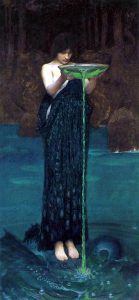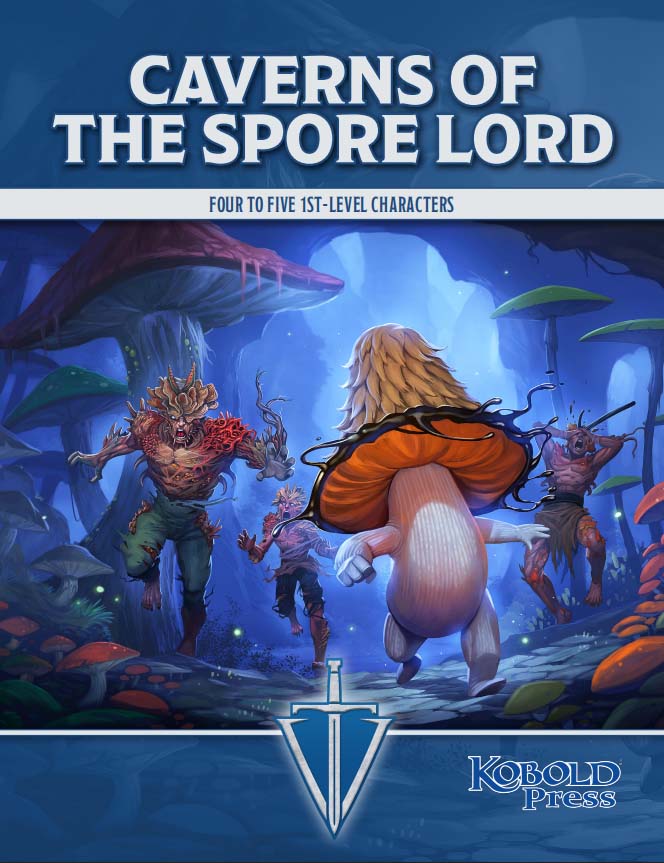 Magic is a wondrous, awe-inspiring, and sometimes scary force in roleplaying games. Although fifth edition handles it well mechanically, it can also make magic seem kind of mundane. Cantrips make magic a common occurrence, and now that every class has a spell-focused player option, it’s more common. So, you might be left feeling that because everyone is special, no one is special. Because magic is the power to bend and shape the universe to one’s will, it can be a wonderful and terrifying concept. Even the simplest of cantrips, or most benevolent of cleric spells, would be met with fear and mistrust if they were introduced in our world. If you think magic should never become a mundane aspect of a game, right up there with tool proficiencies and Armor Class, you have come to the right place.
Magic is a wondrous, awe-inspiring, and sometimes scary force in roleplaying games. Although fifth edition handles it well mechanically, it can also make magic seem kind of mundane. Cantrips make magic a common occurrence, and now that every class has a spell-focused player option, it’s more common. So, you might be left feeling that because everyone is special, no one is special. Because magic is the power to bend and shape the universe to one’s will, it can be a wonderful and terrifying concept. Even the simplest of cantrips, or most benevolent of cleric spells, would be met with fear and mistrust if they were introduced in our world. If you think magic should never become a mundane aspect of a game, right up there with tool proficiencies and Armor Class, you have come to the right place.
The Wondrous Magic articles aim to help you strip magic out of your fifth edition game, making it the sole purview of villainous wizards, witches, and otherworldly monsters. It provides some guidelines for how to treat magical forces in your game, as well as three “variant classes” for clerics, druids, and wizards that are all without spells.
Keeping Magic Wondrous and Scary
Here are three simple guidelines for gamemasters that will help keep magic in their campaign feeling magical, without removing it entirely. You can pick one or all of them as you wish!
- Keep Magic Rare. Make sure that spellcasters and magical effects in your game occur infrequently. Common people should be superstitious and mistrustful of magic, believing it to be “of the devil.” Kings, queens, and other nobles in charge should employ court wizards, whose knowledge of the arcane is purely academic (or downright false). If a group of monsters usually have a spellcaster with them, have them instead rely on clever and deadly traps or cobbled-together devices. A goblin shaman throwing a sealed jar full of bees at the party is more evocative than one that casts fire spells anyway.
- Keep Magic Evil. The only genuine spellcasters your players should run into should be villains. These characters have given up something wholesome or good about themselves to obtain the power of sorcery. Memorizing and holding spells, which are reality-warping pieces of otherworldly magic, can have a degenerative effect and slowly cause madness. This keeps magic feeling weird and dangerous. Facing a creature who can cast fireball or even sleep when you can’t do likewise can keep players on their toes and encourage more creative problem solving.
- Provide Magic Items. The flipside to this is magic items. Without access to healing spells or damaging arcane spells, players might be eager for any help they can get. Magic items, especially potions, are a good way of keeping magic separate from players while also giving them a mechanical boost. If you want to be a little more stringent with them, consider giving potions a toxicity effect, or remove the possibility of recharging from magic wands and staffs.
- Potion Toxicity. You can imbibe a number of potions a day equal to your Constitution modifier before you become poisoned.
Variant Classes
The variant classes following this blog post are simpler than their standard fifth edition versions. They are capped off at 10th level, and they do not offer player options such as domains, archetypes, and traditions. Instead, they provide gradual bonuses and buffs every few levels in their place. These variant classes also maintain the following class features as their standard versions:
- Hit Dice
- Hit points at 1st level
- Hit points at higher levels
- Armor, weapon, and tool proficiencies
- Saving throws
- Skills
- Spell save DC
- Ability score advancement at 4th, 8th, 12th, 16th, and 19th level
Next up: A variant cleric called the friar!


Hey I really liked these articles, they’re well done and just what I was looking for, so thanks a bunch! Any chance there’ll be more in the Rare Magic line?
A rare magic bard/ skald would be great too! For paladins and rangers, do you envision just removing spellcasting and leaving them otherwise unchanged?